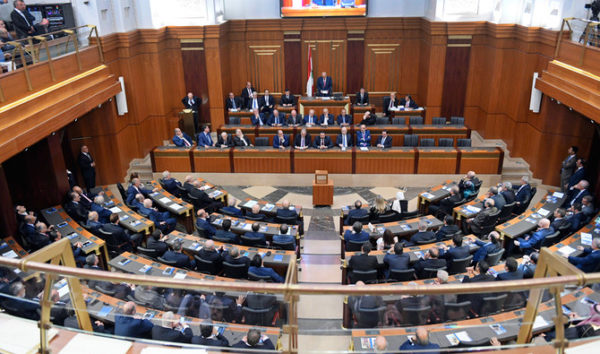Lebanon to enter 2023 without a president as parliament vote on Thursday falls short again . or presidential election This is the last parliamentary session this year session for presidential election The parliament’s failure comes with the country facing a historic economic crisis
Beirut – Lebanon’s polarised parliament failed for the 10th time on Thursday to elect a new president, leaving the country with a political void in the middle of an unprecedented economic meltdown.
The country has been without a president since Michel Aoun’s six-year mandate ended in October, while prime minister-designate Najib Mikati heads a caretaker government because political divisions have prevented the creation of a new cabinet since a general election in May.
The parliament is strongly divided between Hezbollah and its allies and their opponents, which has prevented agreement on a consensus presidential candidate.
Hezbollah is an Iran-backed heavily armed militia and a political party.
Michel Moawad, an MP whose candidacy is opposed by Hezbollah leader Hassan Nasrallah, received 38 votes in the latest attempt to elect a president, while 37 MPs cast blank ballots and six others wrote the words “New Lebanon” on theirs.
Three ballots were cancelled, and one MP voted for the late US civil rights leader Martin Luther King Jr.
In previous sessions votes were cast for historical figures such as Nelson Mandela and Chile’s socialist president Salvador Allende, as well as Luiz Inacio Lula da Silva, Brazil’s leftist president-elect.
Candidates for president must win a two-thirds majority from the 128-seat parliament in the first round of voting. Failing that, they require an absolute majority in the following rounds.
But the two-thirds quorum required for the parliament to convene was lost after the pro-Hezbollah MPs left chamber — a tactic they have used repeatedly since the first electoral session in September — and the session was adjourned by their ally Speaker Nabih Berri.
Thursday’s session was parliament’s final meeting of the year. Parliament Speaker Nabih Berri did not announce a date for the next electoral session.
The failure to elect a president was largely expected, although some had observers hoped for a different outcome after Mr Berri proposed last week to turn the electoral session into a parliamentary dialogue.
But the Lebanese Forces, an anti-Hezbollah Christian party and the largest party in parliament, rejected the proposal on Tuesday. The party said it was a “clear violation of a constitutional requirement” as it considered that the parliament should not stop holding open electoral sessions until the election of the new president.
While this is not the first time the country has experienced a presidential vacuum since the 1975-1990 civil war — former president Mr Aoun was elected in 2016 after two and a half years of political deadlock — the current leadership vacancy comes as Lebanon faces an economic crisis that has plunged most of the population into poverty.
The National/ YL


Leave a Reply
You must be logged in to post a comment.